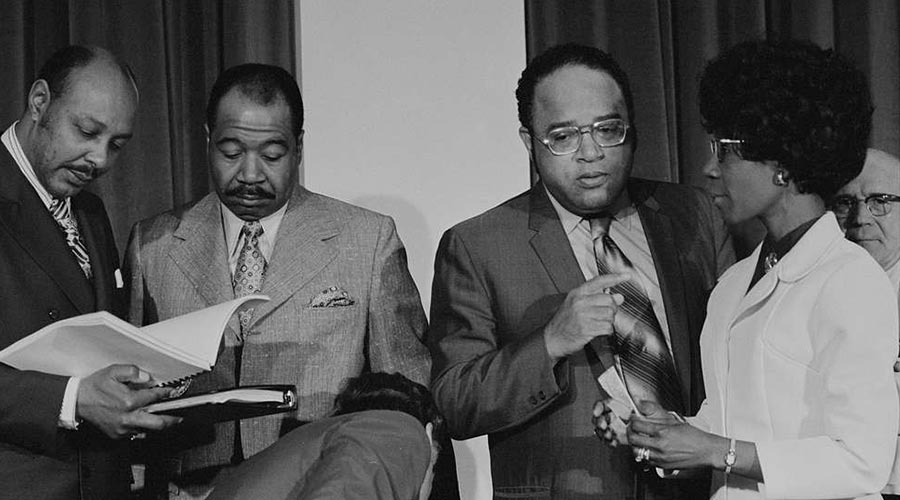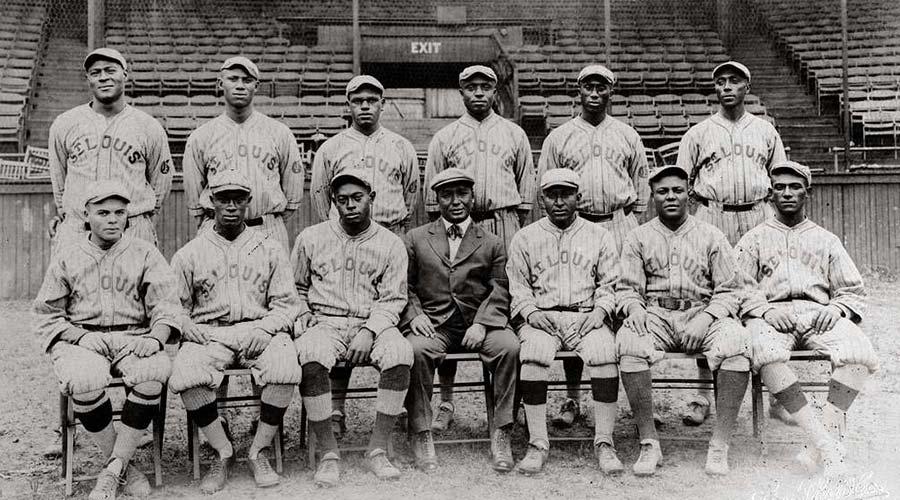The 1916 St. Louis Giants, a Negro League baseball team. “St. Louis Giants National Negro League” by Missouri History Museum is licensed under CC BY 4.0
A pillar of Robert F. Smith’s philanthropy, the preservation of Black history, is crucial for continuing the fight for racial equality and achieving a better tomorrow for all Americans.
“We must never forget that Black History is American History. The achievements of African Americans have contributed to our nation’s greatness.”
— New York Congresswoman Yvette Clarke
We should work to better understand the sacrifices made by prior generations and the important roles African Americans have had in the history of the U.S. By doing that work, we can better discuss the complex story of how we have gotten to where we are today in order to create solutions for the problems of today and tomorrow.
Smith has made numerous efforts to preserve Black history for the educational opportunities and impact that it can have on future generations, including supporting the purchase of Martin Luther King Jr.’s homes in Atlanta, through his position of founding director and President at Fund II Foundation.
He also donated $20 million to the National Museum of African American History and Culture (NMAAHC) in 2016 to help digitization efforts of historic archives and to create internship and fellowship opportunities for students of color at the museum. In recognition of the donation, the museum established the Robert F. Smith Explore Your Family History Center — which helps visitors and online users discover their family journeys and the basics of researching African American genealogy.
In an effort to make Black history even more accessible and provide unique educational opportunities, Hidden Empire Film Group, for which Smith is an Executive Producer, created the online video series Black History in Two Minutes (or so).
Black History in Two Minutes (or so)
A five-time Webby Award-winning digital video podcast series, Black History in Two Minutes (or so) brings short stories of African American history to audiences of all ages.
Executively produced and narrated by Henry Louis Gates Jr., the series covers a multitude of topics, people and historical events that have shaped the U.S. and Black culture alike. The website also provides a free teaching guide for some of the episodes that provides everything from sample questions to activity ideas for impactful learning experiences.
With over 80 total episodes, there are many stories and lessons to uncover throughout the series. The following are a few of the episodes from Season Two, released in the beginning of 2022:
Elite Black Public High Schools in Jim Crow America
This episode highlights the first Black public school, Paul Laurence Dunbar High School, and educators that helped students in the Jim Crow U.S. get the most out of their education before desegregation.
Congressional Black Caucus
This episode explores the Congressional Black Caucus (CBC) and members of this groundbreaking group, including Charles Diggs Jr., the first Black person from Michigan elected to the House of Representatives. Further discussed is the resistance the caucus initially faced after its inception.

Louis Stokes (D-Ohio), George W. Collins (D-Ill.), Charles C. Diggs, Jr. (D-Mich.), and Shirley Chisholm (D-N.Y.) talk at a meeting of the Congressional Black Caucus in 1971. “Congressional Black Caucus Rep. Stokes, Rep. Collins, Rep. Diggs, Rep. Chisholm WKL” by Library of Congress is licensed under CC BY 4.0
The History of Negro League Baseball
Sewn into the fabric of the U.S., the full history of baseballcannot be told without an explanation of the Negro League. This episode dives into the history of the sport, how and when Black and White players were initially separated and ultimately the breaking of the color barrier by Jackie Robinson.
The 15th Amendment
The 15th Amendment, which denies states the right to restrict voting rights based on race and color was ratified in 1870, however states quickly began finding ways around it. This episode discusses the history of Black voting rights and the work that still needs to be done.
Learn more about the different philanthropic efforts of Robert F. Smith.
